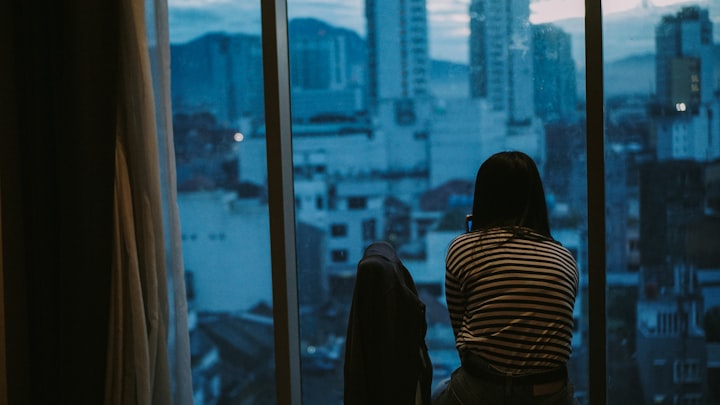3 Incredible Ways My Life Changed After Quitting Twitter
A story of passion, blind rage, and redefining thriving

Never had I struck myself as being capable of the type of envy that can ruin a perfect day. What did I expect? I swam jealousy and drowned in the water. What a horrible way to go.
We all know by now the nature of the Twitter bird. That beast. It feeds on our attention. Giving it just enough can foster a positive relationship between user and platform. Spend too much time and it can swallow you whole.
My disenchantment with everyone’s favorite bluebird began when I stopped mindlessly scrolling and started mindfully scrolling. It was for science. At least, that’s what I told myself.
I wanted to grow my Twitter presence so that I could market myself better. As a music artist, a large portion of the community of producers, songwriters, and tastemakers use Twitter. It was only when I began to critically think about music content that was performing well did I begin a downward spiral.
If I managed to create the right kind of content, I figured, I’d be able to make the connections necessary to move up a rung on the ladder of musical notoriety — whatever the fuck I thought that meant at the time.
Eventually, I was able to induce my own undoing — by studying the platform, I revealed structures and patterns that were previously unnoticed. But noticing turned to annoyance, and annoyance to social media cynicism.
There were two reasons I quit Twitter.
1 — The repetition of content
I leaned into the community, following more musicians and paying attention to high-performing tweets.
Immediately, I was upset in learning that the music community (and the music producer community in particular) did not value making content that would benefit other people. They just wanted to create content that would benefit themselves, and get their numbers up. This took the form of “engagement tweets” that would ask questions that provoked common sense answers instead of a productive conversation.
Not that Twitter is capable of productive conversation, it was just a shame that these clout-chasers had given up on trying.
What was worse was how these engagement tweets spread like wildfire through the community. Because I followed (what seemed like) everyone in those spheres — and yes there were multiple with absurd amounts of overlap, I got a front-row seat to the 140 character shit-show.
There were a few accounts with the majority of the influence, who did most of the heavy lifting. They would tweet something like “you put bass in your songs?” and the community would implode.
To anyone looking in, this might look like a fun tweet to interact with. That’s the point. It’s a joke. Of course, bass is used in songs. Some people misread these tweets as genuine — an entirely different conversation that will likely inspire me to leave another hole in my wall. We’ll table that for now.
But what I hated was that progressively smaller accounts would steal this same tweet, often verbatim, in a pathetic effort to get their own numbers up. An offering to the algorithmic gods, however lazy and unproductive. I think replacing the three seconds it takes to produce an original thought for a braindead cut of the echo-chamber pie is a terrible sacrifice.
There were so many instances of screenshots I had taken of my timeline that had three or more of the exact tweet in a row.
There were a lot of times I took screenshots of essentially the same tweet three times in a row.
I have so many screenshots of my Twitter feed with the same nonsense tweet three times in a row.
To be human is to think. It is in our nature. It brings me great disappointment when I see blatant forfeiture of critical thought, even in an objectively minor way.
These people were ultimately playing to serve their best interests, I have to believe that. But the practice of coattail creating, the act of leveraging original content to lazily “produce” your own, rubbed me the wrong way. There was nothing new added to stolen content.
Good artists copy, great artists steal. But what I saw was bad, and it certainly wasn’t art.
2 — My own jealousy
During this time, I was in the midst of an artistic dry spell. Such is the life of a creative. I’ve become technically skilled enough to formulaically produce music — but at the cost of that magic spark that truly inspired work possesses.¹ I was frustrated with my output. I was frustrated with myself.
No matter which social media you’re on, it’s hard to avoid comparing yourself with others. Whenever I’d go for a scroll through Dorsey Park, I’d see people, other artists, doing what I wanted to be doing.
I’d see a tweet about an artist releasing their new album, another about being interviewed on the radio, and another about a new collaboration in the works between people who have admired each other’s music for years.
And at the start of my creative journey, my first response would’ve been to congratulate them. Be happy for them. Genuinely.
I hate that I had reached the point where any potential for sympathetic joy had vanished, replaced instead by a simple question.
Why couldn’t this have been me?
This wasn’t a new question I had asked myself. I ran a music interview podcast for a year with a devious intention of reverse-engineering the success of other artists to use for my own personal gain.² The show was a mask for providing “growth opportunities” for the artists I spoke with. I could feign care for the music community all I wanted, so long as I could ask deeper questions about what makes success happen and learn from the answers. Steal them. Make my art.
But as I continued to create my own music without any signs of similar success, the question that had once inspired me to build a platform and help be a mouthpiece for fellow artists had turned me into a bitter version of myself.
So when I scrolled to find an artist was playing a HUGE show with some of the biggest names in music, I found myself asking that question again, only this time, it had teeth. Why couldn’t it be me? This was an artist I had watched from the outside for years. At one point, we actually had planned to release a song together. This artist was in my circle, for a time. And I had grown sick of being that close to my dreams without actually being able to live them.
For the first time in my life, I felt my entire face bloom in a red rage. My heart began beating faster, I could feel my pulse beat through my neck and push against my skin, unsure if the sudden pressure might cause me to faint. I knew at that moment I had finally snapped, a bit afraid of myself — if I can’t control this feeling, then who have I become? Jealousy is no way to live.
Throughout my life, I have always been proud of how my parents have raised me to remain calm in a crisis. In moments I plan to write about here soon, when called upon, my logical brain reliably assumes control of my faculties, allowing me to think critically about the present danger and respond accordingly. Precise and efficient.
Somewhere in the midst of what can only be called an “envy-induced anxiety attack,” my logical brain kicked in, immediately saving me from my own distress. Not that there was any real danger after all. In one swift movement, I had scrolled, read a post, and felt the most terrible jealousy I had ever experienced. And in another movement, made nearly automatic by responses ingrained in me since childhood, my thumb tapped, held, then dragged Twitter to be deleted from my phone. A clean cut.
I remember getting up from my desk and making my way outside with a lawn chair in hand — I knew I’d be out there for a while.
Life post-Twitter
Immediately, my quality of life improved. Here are the three direct benefits I actively enjoy since I stopped scrolling:
1. Increased focus. This coincides with another practice I’ve been implementing, which is to turn off my phone for the day, only checking messages at night.³ Our brains are not meant to multi-task. And no, you’re not the exception. Science says so. Without my phone to distract me during daylight hours, I’ve found my time spent on creating to be completely unburdened from external influence and comparison. Comparing your own work against itself is wonderfully more constructive than pitting it against the work of others. Although genres exist in every Medium (and on Medium, wink wink), it is how ideas are individually expressed that we derive value from. Knowing that your creative process and output are meant to be very and often completely different than your peers is something to relish in, enjoy, and celebrate. I’ve found it far more efficient to say what I mean to say in my work when my words aren’t clouded by the words of others around me. This has only increased the quality of my work.
2. More meaningful interpersonal interaction. There are certain stages of my life that have prompted me to attempt a cleansing of my timeline. At the end of high school, I unfollowed a lot of people I knew I’d never see again, simply because our paths and interests weren’t the same. The same was true at the end of college — another mass unfollowing because there are people that would receive zero mutual benefits from remaining in contact. Is this a bit cutthroat? Maybe. Have any of them attempted to communicate with me since? No. And that’s fine — it just proves that the nature of our relations was within my own expectations. Now, without a constant digital flurry of shouts and echoes into the void, I find myself taking the time to engage with a smaller, more meaningful group of creatives. The remaining connections I have are with people I engage with at more regular intervals than before, having more productive conversations about our shared interests, passions, and pursuits that I wasn’t able to find on Twitter. Finding your tribe and connecting with like-minded individuals is vital to the thriving of anybody, no matter their pursuits. Just yesterday I managed to catch up with an Aussie friend of mine I met through the internet. Incredible.
3. Consuming better content. Despite my attempts at following different groups of people, so long as they remained within the sphere of influence of larger accounts, my feed would be flooded with half-baked, fully recycled ideas. Since I’ve severed ties with that corner of the internet, I’ve found it easier to consume more meaningful content on other platforms. On YouTube, I’ve become obsessed with videos about art and craft to a degree I had never explored before. On Medium, I’ve begun to explore my curiosities about writing and storytelling. Although these resources had always been at my disposal, I never had the mental bandwidth to entertain these curiosities to the extent I do now. Every day, I wake up reading books, and I fall asleep listening to stories. My obsession with wordcraft, along with my need to express myself sonically through my music, has found new and deeper roots in my daily life. There isn’t an air of comparison and doubt (the thieves of joy and self, respectively) hovering over my work anymore. The result is a freer atmosphere, and a more enriching relationship between the content I consume and my own acts of creation.
Without knowing it, I had restructured my life using tenets described in Cal Newport’s Digital Minimalism, which is exactly what it sounds like. Quitting Twitter, coupled with a recent purge of my Instagram timeline (the only other platform I continue to use, although sparingly), made me a digital minimalist.
I’m not here to preach the same digital minimalist rhetoric I’ve seen here on Medium. No platform is infallible, I’ve seen plenty of recycled, shallow, heartless content on here.
But I do want to add to Newport’s exploration of the relationship between the perceived and actual value of (a) technology in someone’s life.
Digital minimalists see new technologies as tools to be used to support things they deeply value — not as sources of value themselves. They don’t accept the idea that offering some small benefit is justification for allowing an attention-gobbling service into their lives, and are instead interested in applying new technology in highly selective and intentional ways that yield big wins. Just as important: they’re comfortable missing out on everything else.
So long as we come to our own conclusions about how technology ought to be used in our own lives and act in ways that uphold that personal code, anyone can tame the social media beast.
For me, it took quitting Twitter to be able to clearly define the boundaries of my relationship with social media. I want to use socials as a means to:
- Find inspiration for my own projects. Consuming content that you tailor to your own needs and pursuits is a power within itself. Maybe I’ll write about this process, I think that could be valuable to creatives.
- Connect with other like-minded individuals to learn and grow with them, rather than from them
- Respect my own time. I’ve written before about the sheer hours younger generations put into screen time. It scares me, this technology has been just long enough to be optimized as attention grabbers but is still new enough that society hasn’t developed reliable ways to cope with this technology.
Your own values of how you ought to use social media might look similar to mine, or vastly different. There is no one-size-fits-all when it comes to defining these values and boundaries — fluid or static.
I strongly encourage you to try a social media detox of your own, either weaning yourself from that digital dopamine or cutting yourself off entirely.
I’m biased, but I think it’s worth the experiment. You could just change your life.
About the Creator
Justin Boyette
4x Top Writer on Medium. Telling interesting stories from life's ordinary moments.
Writing about learning, organization, and erudition.






Comments
There are no comments for this story
Be the first to respond and start the conversation.